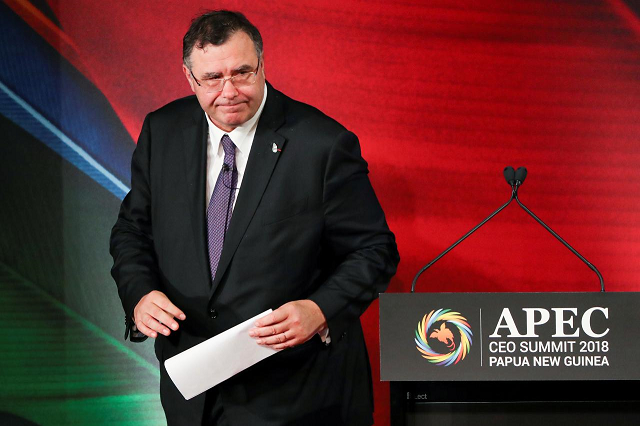Total says batteries investment depends on level playing field with Asia
In a next-generation European battery alliance project to research, develop and build solid-state battery

Chairman and CEO of Total Patrick Pouyanne attends the APEC CEO Summit 2018 at Port Moresby, Papua New Guinea, 16 November 2018.
PHOTO: REUTERS
Battery maker Saft, a unit of Total, said in May that it planned to invest more than 200 million euros ($233 million) in a next-generation European battery alliance project to research, develop and build a new generation solid-state battery to compete with Asian and US rivals.
Amazon under fire for supplying police with facial recognition tool
Saft’s four-way alliance with Siemens, Solvay, and Manz plans to begin mass production of new generation lithium-ion batteries from early 2020, but Total CEO Patrick Pouyanne is concerned that European manufacturers would be operating at a disadvantage to Asian rivals.
“I will not launch the group and Saft in operations worth several billion euros if, in the end, we do not have the fair competitive framework between us and others,” Pouyanne said at a conference in Paris, adding that some Chinese manufacturers benefit from state aid.
Several projects have been announced in recent months to build battery plants in Europe and last week the German government said it had set aside about 1 billion euros to support battery cell production.
“Today, if you want to provide an electric vehicle in China with a battery, it must be built in China by a Chinese manufacturer,” Pouyanne said.
Microsoft seeks regulation of facial recognition technology
“That’s a problem and for now the dialogue we’re having with European governments is to know if we can protect ourselves like that in Europe.”
France called on Thursday for European battery manufacturers and carmakers to create a consortium able to meet the growing demand for electric vehicles and compete with dominant Asian producers.
Pouyanne said it was out of the question for the sector to replicate what happened in the solar panel industry, where European companies invested heavily only to close down in the face of Chinese competition.



















COMMENTS
Comments are moderated and generally will be posted if they are on-topic and not abusive.
For more information, please see our Comments FAQ